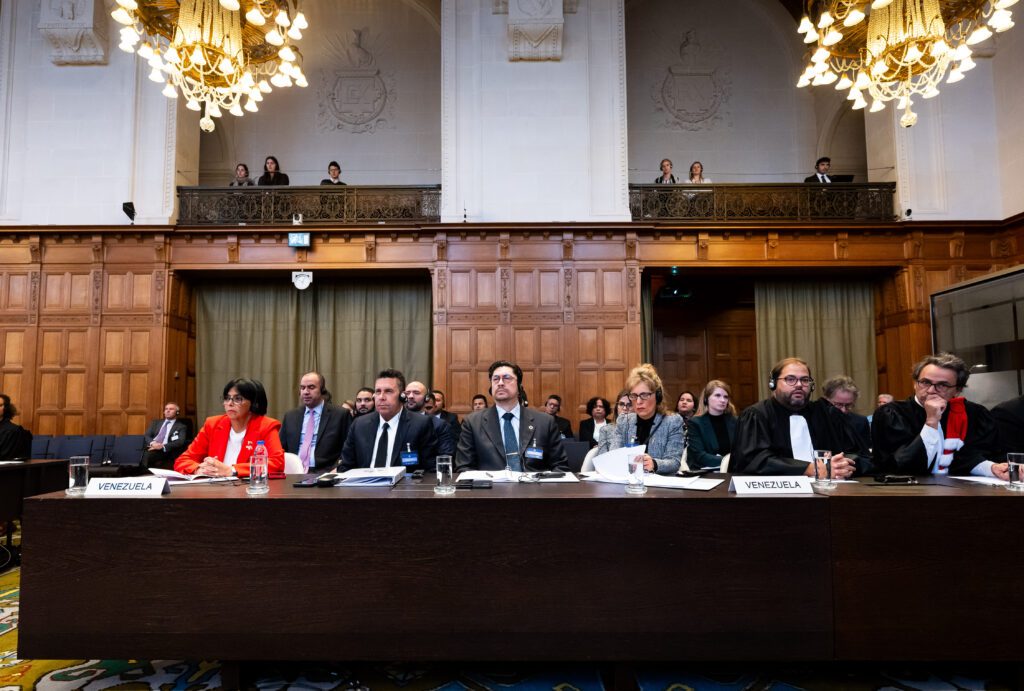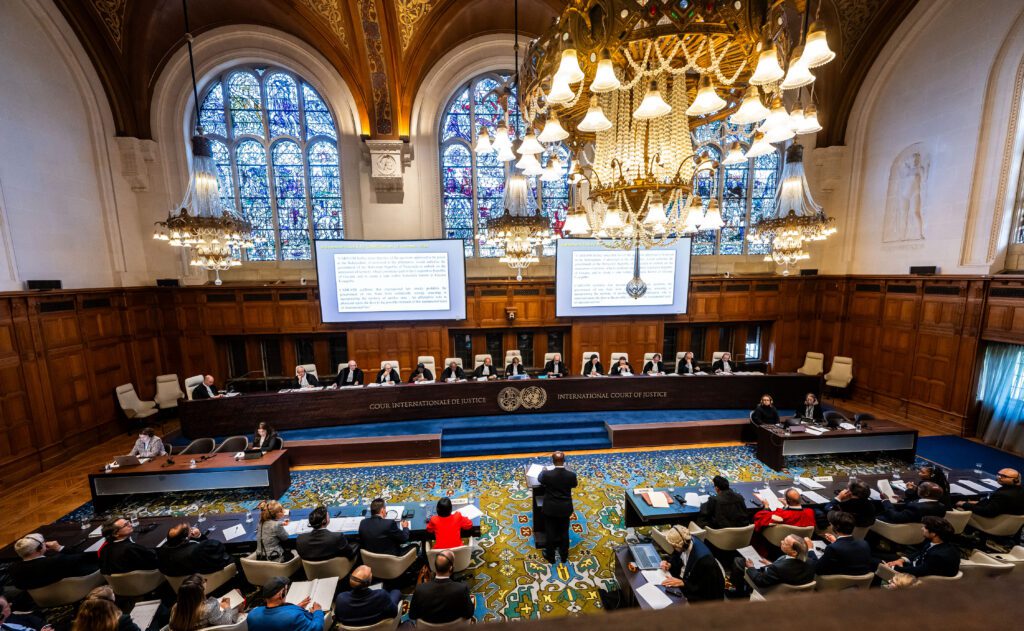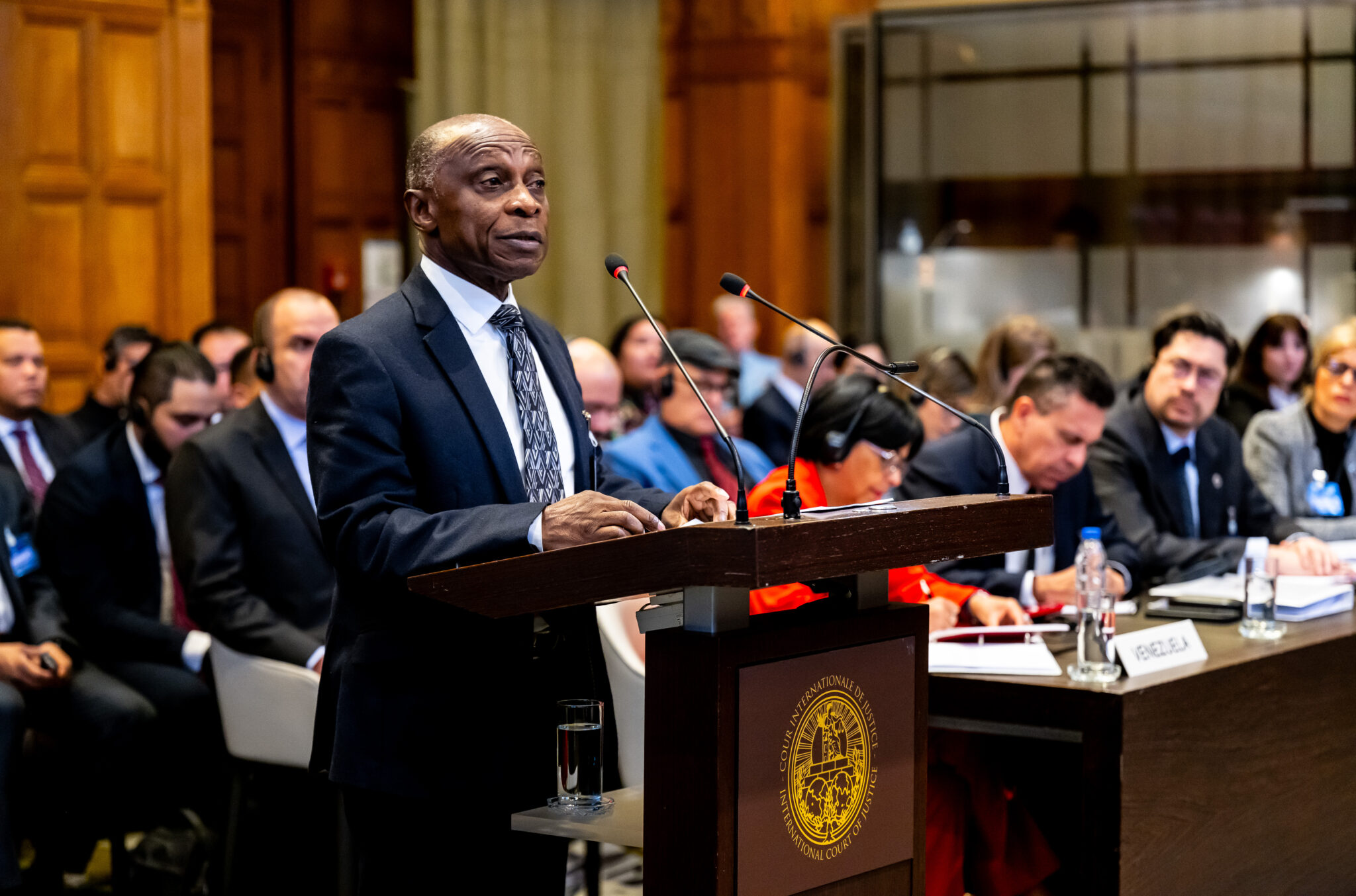Guyana sees the International Court of Justice (ICJ) as the power to prevent the annexation of two-thirds of its territory, which would follow a controversial referendum by its neighbor Venezuela. The Nicolas Maduro regime is attempting to seek public backing in its quest for the Essequibo region.
This much was stated by the country’s agent, Carl Greenidge, on Tuesday morning as Guyana’s team – consisting of Attorney Paul Reichler and Professor Alain Pellet – appeared before the World Court to present oral arguments on the referendum.
Guyana has asked the ICJ for provisional measures to block Venezuela from proceeding with the referendum. Greenidge, in his presentation, said that Guyana has not “wavered” in its trust for the ICJ, deeming it the only means for achieving a final and binding solution to the controversy.
“The Court alone stands between such a solution and chaos, chaos that would threaten peace and security for Guyana and for the Caribbean region and beyond,” he said to the World Court.

With international law strictly prohibiting governments of one state from unilaterally seizing territory from another, Greenidge said the referendum opens the door to a violation of that tenet.
“Only the Court stands as the guardian to that gateway. Only the Court can protect Guyana and its rights at issue in this case from the irreparable harm that would certainly befall it if Venezuela is permitted to cross that threshold… Only the Court can present the annexation of tens of thousands of Guyanese territory,” he continued.
Taking over from Greenidge, Reichler presented to the World Court clear evidence that Venezuela is resolute in bringing the referendum to life.
To the ICJ, he presented a slew of social media posts on ‘X’ (formerly Twitter) made by Venezuela’s President, Nicolas Maduro, and its Defence Minister, Vladímir Padrino López.
Clips of military troops training were also shown and, according to Reichler, shows the country’s blatant attempt to ignore the ICJ and take action against Guyana. Maduro himself had said Venezuela has never recognized the ICJ for the resolution of the issue.
“[This] is an affront to the rule of law itself. And [Venezuela’s] creation of a new Venezuelan state incorporating the entire Essequibo region fully usurps the rights claimed by Guyana in these proceedings which will be irreparably injured, if not completely eviscerated with the Court’s protection,” the Attorney underscored.

Reichler explained to the World Court that Guyana has taken no action, nor does it intend to take any that would “disrespect the Court or prejudice the rights claimed by Venezuela to the territory at issue” in the case.
“All the evidence points to the contrary. It establishes that only one party to these proceedings is acting to the irreparable prejudice of the other’s rights and that transgressive party is Venezuela,” he continued.
The Attorney made it clear to the Court that there is “no grounds” for the indication of provisional measures against Guyana or against both parties. If Venezuela were to ask for the same, Reichler said Guyana remains confident that the World Court would not be deterred from dispensing justice over “such claims of false equivalence”.
Guyana has formally requested the ICJ to indicate the following provisional measures:
- Venezuela must not proceed with the consultative referendum planned for December 3, 2023, in its current form.
- Venezuela must refrain from including the first, third, or fifth questions in the consultative referendum.
- Venezuela should not include any question within the consultative referendum, or any other public referendum, that encroaches upon the legal issues that are to be determined by the Court in its judgment on the merits. This includes but is not limited to, matters concerning the legal validity and binding effect of the 1899 Award, sovereignty over the territory between the Essequibo River and the boundary established by the 1899 Award and the 1905 Agreement, as well as the purported creation of the State of ‘Guayana Esequiba’ and associated measures such as the granting of Venezuelan citizenship and national identity cards.
- Venezuela must refrain from any actions intended to prepare or allow the exercise of sovereignty or de facto control over any territory that was awarded to British Guiana in the 1899 Arbitral Award.
- Venezuela should avoid any actions that might exacerbate or extend the controversy before the Court or make it more challenging to resolve.
The ICJ has affirmed its jurisdiction twice to address the controversy between Venezuela and Guyana, offering the potential for a final, binding, and equitable settlement under international law. But despite participating in the ICJ proceedings, Venezuela has been attempting to deviate from the process.
Maduro, in September, proposed to meet directly with President Irfaan Ali to resume the 1966 Geneva Agreement, as Venezuela ramped up its aggressive posturing because of Guyana’s bid round. That included increased military activities and troop mobilization by Venezuelan forces in proximity to Guyana’s borders. And more recently, Venezuela’s upcoming referendum to take over the Essequibo region.
The hearings continue on Wednesday with Venezuela making its presentation.




